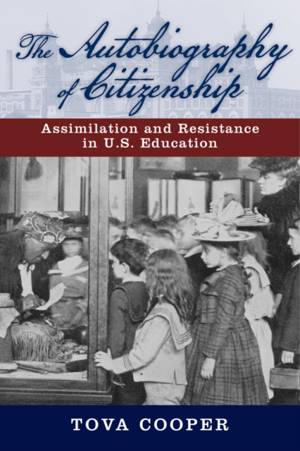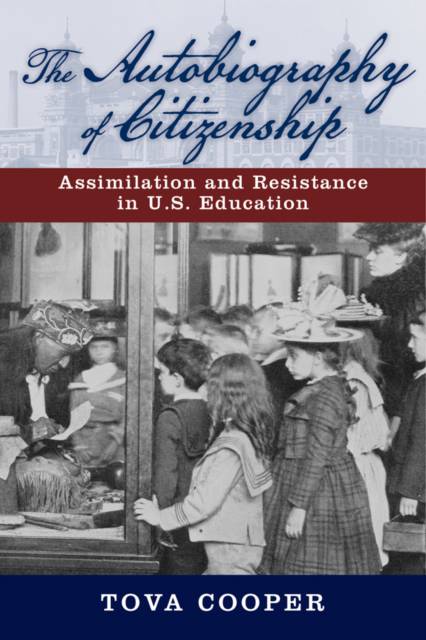
Bedankt voor het vertrouwen het afgelopen jaar! Om jou te bedanken bieden we GRATIS verzending (in België) aan op alles gedurende de hele maand januari.
- Afhalen na 1 uur in een winkel met voorraad
- Gratis thuislevering in België
- Ruim aanbod met 7 miljoen producten
Bedankt voor het vertrouwen het afgelopen jaar! Om jou te bedanken bieden we GRATIS verzending (in België) aan op alles gedurende de hele maand januari.
- Afhalen na 1 uur in een winkel met voorraad
- Gratis thuislevering in België
- Ruim aanbod met 7 miljoen producten
Zoeken
€ 254,45
Uitvoering
Omschrijving
At the turn of the twentieth century, the United States was faced with a new and radically mixed population, one that included freed African Americans, former reservation Indians, and a burgeoning immigrant population. In The Autobiography of Citizenship, Tova Cooper looks at how educators tried to impose unity on this divergent population, and how the new citizens in turn often resisted these efforts, reshaping mainstream U.S. culture and embracing their own view of what it means to be an American.
The Autobiography of Citizenship traces how citizenship education programs began popping up all over the country, influenced by the progressive approach to hands-on learning popularized by John Dewey and his followers. Cooper offers an insightful account of these programs, enlivened with compelling readings of archival materials such as photos of students in the process of learning; autobiographical writing by both teachers and new citizens; and memoirs, photos, poems, and novels by authors such as W.E.B. Du Bois, Jane Addams, Charles Reznikoff, and Emma Goldman. Indeed, Cooper provides the first comparative, inside look at these citizenship programs, revealing that they varied wildly: at one end, assimilationist boarding schools required American Indian children to transform their dress, language, and beliefs, while at the other end the libertarian Modern School encouraged immigrant children to frolic naked in the countryside and learn about the world by walking, hiking, and following their whims.
Here then is an engaging portrait of what it was like to be, and become, a U.S. citizen one hundred years ago, showing that what it means to be "American" is never static.
The Autobiography of Citizenship traces how citizenship education programs began popping up all over the country, influenced by the progressive approach to hands-on learning popularized by John Dewey and his followers. Cooper offers an insightful account of these programs, enlivened with compelling readings of archival materials such as photos of students in the process of learning; autobiographical writing by both teachers and new citizens; and memoirs, photos, poems, and novels by authors such as W.E.B. Du Bois, Jane Addams, Charles Reznikoff, and Emma Goldman. Indeed, Cooper provides the first comparative, inside look at these citizenship programs, revealing that they varied wildly: at one end, assimilationist boarding schools required American Indian children to transform their dress, language, and beliefs, while at the other end the libertarian Modern School encouraged immigrant children to frolic naked in the countryside and learn about the world by walking, hiking, and following their whims.
Here then is an engaging portrait of what it was like to be, and become, a U.S. citizen one hundred years ago, showing that what it means to be "American" is never static.
Specificaties
Betrokkenen
- Auteur(s):
- Uitgeverij:
Inhoud
- Aantal bladzijden:
- 280
- Taal:
- Engels
- Reeks:
Eigenschappen
- Productcode (EAN):
- 9780813570150
- Verschijningsdatum:
- 8/02/2015
- Uitvoering:
- Hardcover
- Formaat:
- Genaaid
- Afmetingen:
- 150 mm x 229 mm
- Gewicht:
- 544 g

Alleen bij Standaard Boekhandel
Beoordelingen
We publiceren alleen reviews die voldoen aan de voorwaarden voor reviews. Bekijk onze voorwaarden voor reviews.












